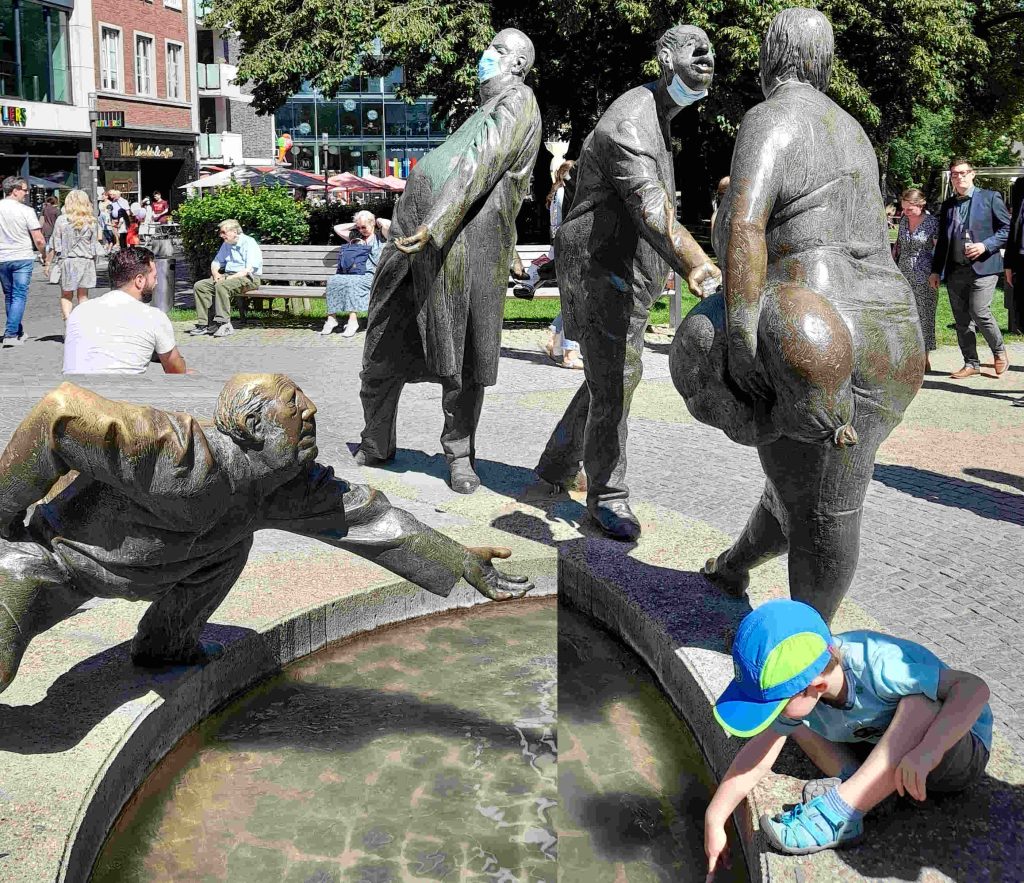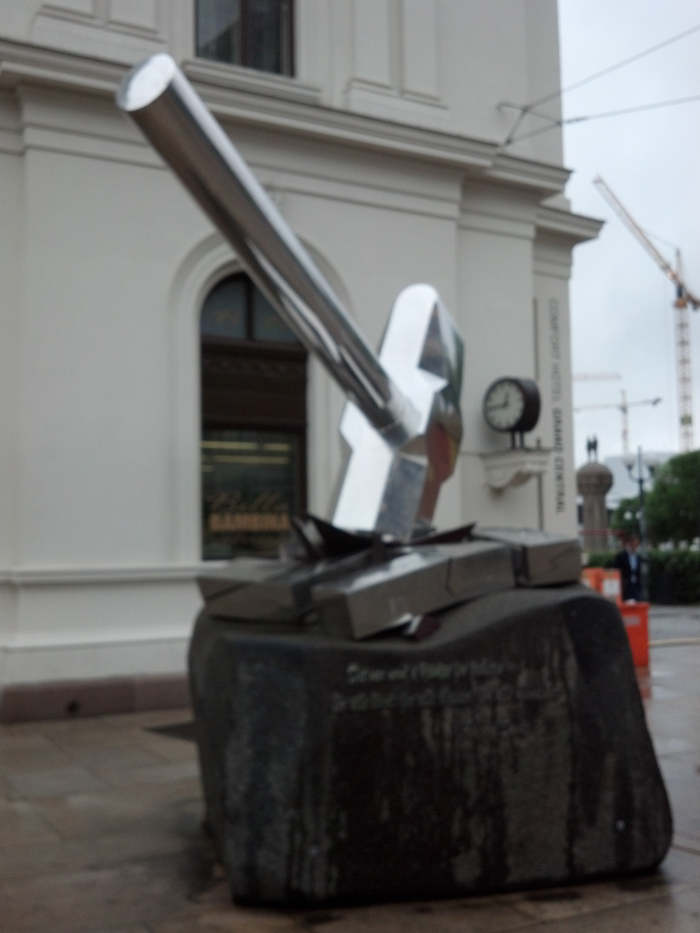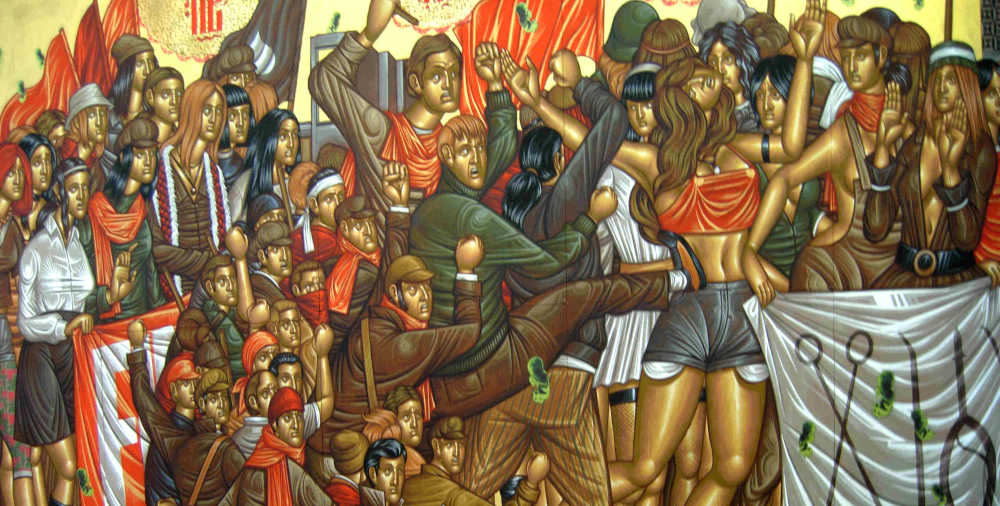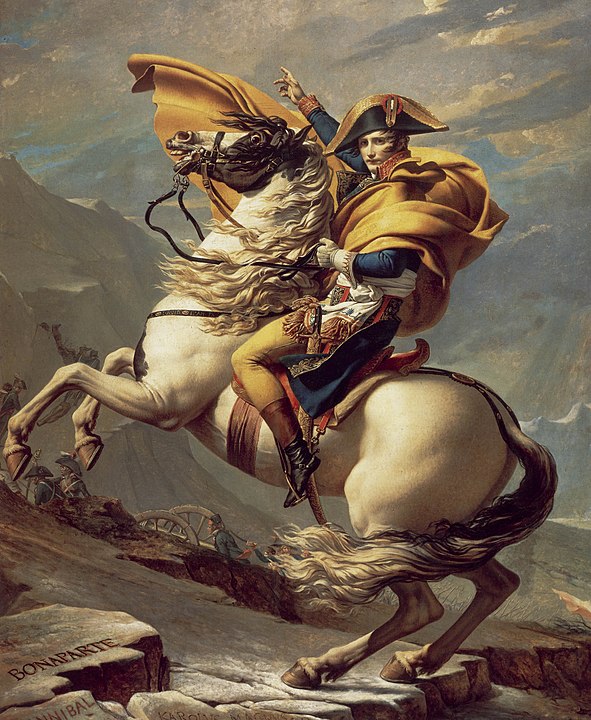
We should distinguish between politics and morality. Some old bronze canons at the Akershus castle in Oslo carry the inscription: The King’s final argument. Politics is about state power and power is about violence. You should remember that and be reluctant to use politics to achieve your goals, whether individual, collective or that of a party.
War and peace
The problem about war and peace is that they are interconnected – at least by time. Peace to-day does not (and should not) make you forget that there has been war. (And if you forget, others will not.)
So what policy is most useful for maintaining peace? One classical answer is: If you want peace, prepare for war. Another classical: If you want peace, maintain justice. But is there anything you can do to directly strengthen peace? Certainly, almost everything that binds two countries together contribute to peace, trade being the obvious example.

Dependence and independence
However, trade makes you dependent. If not for ever, then obviously in the short run. How important is independence to you? The wider your horizon – regarding time and options, the more you see that what you now have, you risk not having later. If you want to be totally independent, don’t have anything to do with anybody.
If you, however, choose to be dependent (to a certain extent), you may one day find yourself connected to someone you no longer like (and sometimes people have deeper reasons). What do you do then, and how do you feel? Do you say that, – well, it worked for a while and it was worth it -? Or do you regret that you ever had anything to do with the X that you no longer like?
In George Orwell’s famous novel “1984” the government did the latter and took the approach even further. In order to maintain a clear-cut world in which everything is black and white, they changed the past. If the country switched from one enemy to another, the history of the country was rewritten. ‑We are now at war with (say) Eurasia – we have ALWAYS been at war with Eurasia!
Confusion
Clear-cut propaganda in either direction may be boring, but I hold confusion to be no better. The image below was seen at the Kassel art fair in 2017.

The demonstration depicted seems to me to be quite confused. I think artists read our time well if they see confusion. However, if they simply fall victim to confusion themselves and deliver confused art, it does not help us out, rather the opposite!
Less confused, perhaps, on the part of the artist, I find the contribution of the famous Chinese artist Ai Weiwei below. Ai Weiwei wanted to call attention to the problems of Syrian refugees and lent his name to the cause. Politics, ok, but I hold this to be no more art than any other citizen posing in the same way. If there is confusion about this being “art”, I guess Ai Weiwei is not responsible for that.
Artwork of the fortnight
Is this painting clear-cut propaganda? Yes, but I will suggest it also has some subtle points.

The background is blurred. Napoleon appeared on his domestic and on the European scene at a time by which people’s values and orientation were also blurred. The ground on which the equipage stands is barren stone. Add a common enemy, and this is the perfect background for the rise of authoritarian leadership.
Can you imagine yourself on the horse? If not alone, like Napoleon, perhaps along with thousands, or even millions, of others, all pointing in the same direction?
In any case, the limitation of power is that it can basically only destroy. It cannot basically create.——

Schreibe einen Kommentar